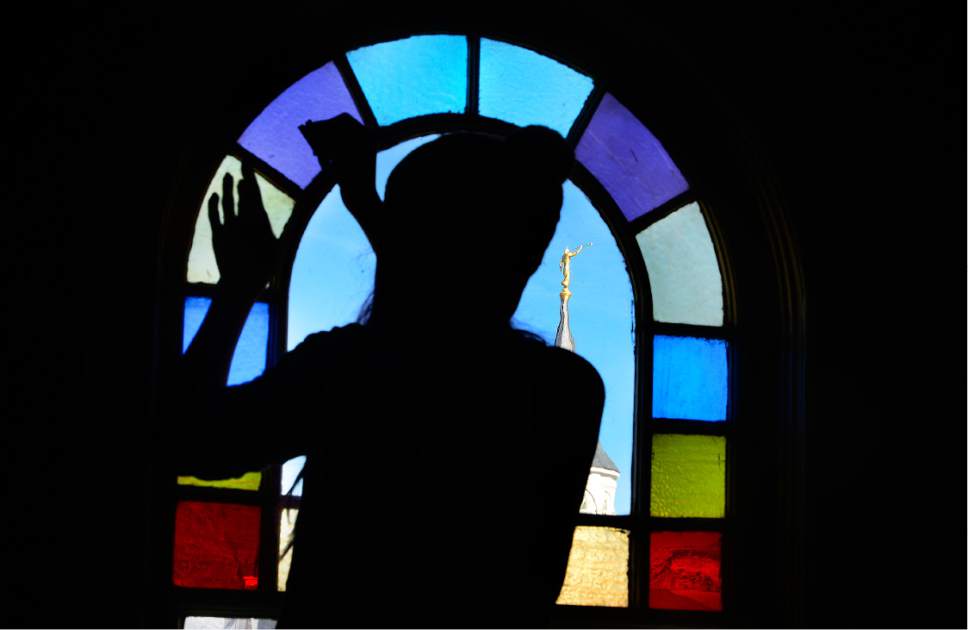This is an archived article that was published on sltrib.com in 2017, and information in the article may be outdated. It is provided only for personal research purposes and may not be reprinted.
Dear Ann Cannon • I hope you can help me with a problem. My nephew is getting married at the end of the month. I've been very close to him and his family over the years and have given them financial and emotional support. I lead a good life, but because I don't pay tithing (although I freely donate to various charities) and occasionally drink alcohol and coffee, I am not allowed to participate in his LDS temple wedding. I am invited to the reception, but I am inclined not to attend. Just as the LDS Church can set its criteria for temple attendance, I have my criteria: If I'm not invited to the wedding part, I don't make an appearance at the reception.
What frustrates me is that I, along with most people, have friends of different religious faiths. They welcome everyone to share in the special event. The contradiction between the slogan "Families Are Forever" and the refusal to include everyone in the family is hard to ignore. My nephew seems to understand my position, but my family and his fiancee's family are upset. They expect me to abandon my principles in the matter. How do I deal with the criticism and confrontation that are already coming my way?
— Sticking by My Principles
Dear principles • There's nothing like a wedding to trigger family drama, unless of course it's a family funeral. Weddings and funerals are oddly alike, except that you usually have a lot more time to plan for a wedding.
Thank you for raising this issue. Believe me when I say I understand your frustration, as well as your hurt and anger. I've been involved in a number of Mormon weddings with scenarios similar to the one you've described and you're right: There's an inherent irony in celebrating family bonds when not everyone in a family is allowed to participate. I have a friend, a devout convert of many years, who dearly wishes in retrospect that she'd had a civil ceremony first, followed by a temple ceremony later, so that her nonmember parents could have been present — not for her sake, but for theirs. (For those who don't know, temple attendance is limited to adult LDS Church members who hold a "recommend," a document signed by local church authorities that verifies an individual is living by a prescribed set of standards.)
You're also right that the LDS Church, like any religious or secular institution, can create and enforce its own rules.
As to your specific situation, I offer the following thought: Remember that this event is about your nephew and his bride. It isn't about their families and it isn't about you. Keep this in mind as you make your decision. If, as you imply, your nephew really won't be offended if you don't attend his reception and you're personally OK with the heat (because there will be heat) you'll take from other family members for not showing up, then don't go. But don't let your own pride back you into a corner either. Remain flexible.
If you decide not to go, have a response ready for family members that doesn't incite a fight, unless, of course, you're all in the mood for a fight. Families are like that sometimes — in the mood for a fight. Attempt to shut it down with a polite, "I'm not going to the reception and my nephew is fine with my decision."
And now because I can never resist making random observations, here are some random observations.
1. Temple wedding ceremonies are typically held in small rooms, which naturally limits seating. It's not unusual for Mormons who hold temple recommends to be excluded from ceremonies for that reason alone. So there's that.
2. There are plenty of Mormons who, while honoring what they see as the sacred nature of the temple ceremony, also feel uncomfortable with the notion that not everyone in a family can be in attendance, including younger siblings. So there's also that. It's important that none of us demonizes a person who's on the other side of an issue.
3. If you do meet with criticism, ask yourself where that criticism is coming from. Does it come from a place of concern for the bridal couple? Discomfort because you've challenged the status quo? Fear that you might regret your decision down the road? All of the above? Sometimes knowing why we're being attacked helps us manage the attack.
Best wishes to you all.
Do you have a question for Ann? Send it to askann@strib.com or visit the Ask Ann Cannon page on Facebook.





